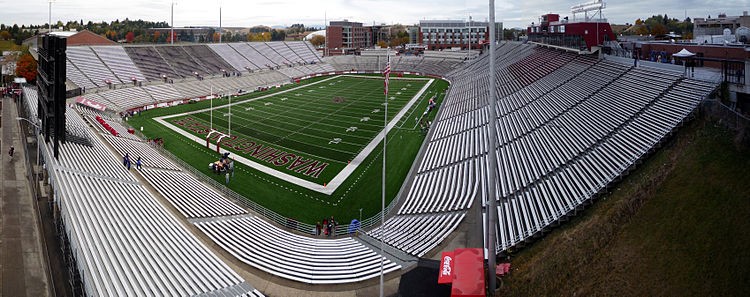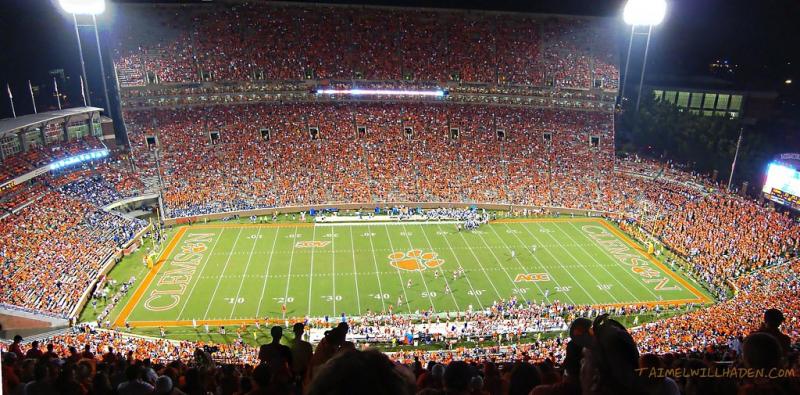Does an Empty Stadium Make a Difference to Results?
You would gather that the NCAA and other decision-makers in college sports have a lot of thinking to do over the coming weeks and months. Yes, we have seen the release of some college sports schedules, and plans for how the 2020/21 seasons will look, but much of it is tentative. People talk about a new normal, but nobody is sure what it will look like.
However, even if there is to be a new season with a full programme of college sports, there is an acceptance that we might see vastly reduced crowds – or no crowds at all. For that reason, we wanted to ask the question: Will this impact results for teams next season?
The first issue we have with answering that question is, as you might expect, the lack of precedence. If we look to Europe, where elite soccer leagues restarted in June, there has been a general acceptance that empty stadia tend to help the better teams. The theory goes that inferior teams no longer get that big lift from a partisan home crowd, which helps more talented visiting teams neutralize the advantage once held by the opponent.
Not enough data to scrutinize
But the data sets are too small to make such pronouncements with confidence. Moreover, there are other factors that can sully the data. For example, Liverpool FC had a perfect home record when playing in front of fans in the Premier League this season, but lost that record recently when playing in an empty Anfield stadium. We could look at that data and say that the Liverpool team plays better when there are no fans. However, the loss of that 100% record came after the team secured the Premier League title. For the champions, the game was a dead rubber.
It shows us that sports statistics can be misleading, especially when the data is limited. If we look at a hypothetical scenario where the 2020/21 LSU football team goes 14-1 this season, losing one game at Tiger Stadium, we might see a statistic that says Tigers lose 16.6% (one from six) of home games when playing with no fans in attendance. We could look back at the 15-0 2019/20 season, and – based on the data – say that the Fighting Tigers do better with fans in attendance. But which season is the anomaly? Most level-headed pundits would claim last year’s perfect season is the outlier.
Regardless, sportsbooks have judged that the prospect of having no fans as inconsequential to the overall outcome. If you look at the latest US sports betting odds, you’ll see that the teams at the top of the markets– Clemson (men’s football), Baylor (men’s basketball), the Chiefs (NFL), the Lakers & Bucks (NBA) – remain in much the same position as they did at the end of last season (or before the season was postponed in the case of NBA). There was no adjustment for the prospect of teams playing with no fans.
Home advantage is important in college sports
If the data is not extensive enough, should we then look at it this process as useless? Far from it. Put yourself in the frame of mind of a visiting team heading to Memorial Stadium to take on Clemson. Death Valley has served the Tigers will over the last 80 years or so, and the sea of orange in the stands can be intimidating for opposing teams. It is, of course, accepted wisdom that the 80,000 fans help Clemson, but we do not know how much. But as a visiting team, you will probably take a lot more confidence to see empty stands this season.
Home advantage has long been cited as an important factor in sports in general and college football in particular, and this is reflected in the betting odds. But, as with the impact of the crowd, it is also a measurement that becomes unquantifiable at times. In the 2019 men’s college football season, 14 teams posting a perfect home record. The only team to not face at least one defeat on the road (including neutral venues) was LSU when posting that perfect 15-0 record. Clemson (14-1) came very close, of course. The difference is starker for teams like the Washington Cougars, who posted a 5-1 home record and a 0-5 away record.

So, what makes home best? The fact that teams are accustomed to their own facilities? The type of grass on the field? The dimensions of the court or field (clearly more important in sports like baseball)? The climate? Or is it the fans lifting the home team beyond its normal capacity to perform? We simply don’t know. But you can be sure that some visiting teams will be buoyed at the prospect of seeing empty stands this season. All of us will hope that does not come to pass, but it will be interesting, nevertheless to see if there is an impact.

